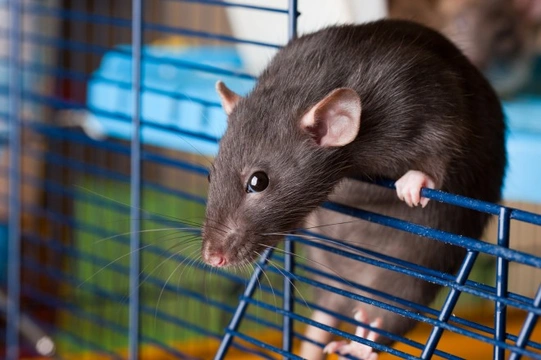
Common first aid scenarios for rats and other small pet rodents
As owners of a pet of any size, we all have concerns at some point about how we would manage if our pet became ill or injured, and what we would do about it. Small pets such as rats and other rodents are a particular concern, as they are small, fragile, and often, it can be hard to tell if something is amiss.
It is vitally important to have your rat registered with a vet, have a first aid kit to hand, and have a plan to follow in an emergency, and also to familiarise yourself with some of the potential scenarios that you as a rat owner may face with your pet. In this article, we will look at some of the most common first aid scenarios that the rat owner may potentially face. Read on to learn more.
Crush injuries
Crush injuries, such as can be caused by standing or sitting on your rat by accident, are rather common in rats that spend a lot of time out of their cage. There is little that you can do at home to recognise or treat a problem after an accident such as this, and even if your rat appears fine after the incident, it is vital to take them to the vet for a check-up ASAP, as there may be internal injuries.
Trapped paws or toes
If your rat has caught their foot or toe in something, such as the bars of their cage, they will tend to bleed a frightening amount, and having a styptic powder to hand and something to wrap the limb in to stop the bleeding is important. If the bleeding can be stopped and the limb is not obviously injured and your rat can walk on it, this may be all that is needed; however, if you suspect a break or dislocation, you will need to take your rat to the vet.
Degloving injuries
Degloving is the term used to refer to an injury that causes the skin to scrape off or be otherwise removed from a limb, such as a finger for people, or the tail for the rat. Degloved tails will often bleed heavily, and so you should do what you can to stop the bleeding, and take your rat straight to the vet.
Falls
Rats are fairly acrobatic little pets, and of course, we often hold and handle them much higher from the ground than they could reasonably survive a fall from unharmed. Falls from height may cause obvious injuries such as a broken leg, but they can also lead to internal damage that will not be immediately apparent, and so if you drop your rat, it is important to take them to the vet right away.
Poisoning
Rats are apt to chew on all manner of things, and not all of these things will be safe for them! Rats cannot vomit, and so they are particularly at risk from the accidental ingestion of toxins. Take your rat to the vet right away if you know or suspect that they have ingested a toxin, and if you know what it is that they ate, take the packaging or a sample of it to the vet with you. Keep your rat warm and comfortable in the meantime.
Bleeding wounds
Rats are apt to pick up minor scrapes and other injuries on occasion, and if these are simple grazes that are not deep and do not bleed a lot, you may be able to manage them at home. Clean the wound and treat the area with an antibiotic gel or powder, and the wound will usually heal itself.
However, if the wound is bleeding a lot, is large, or involves a puncture injury, do what you can to stop the bleeding, and take your rat to the vet.
Choking hazards
Rats in particular seem to be rather prone to choking and getting things lodged in their throats, and the symptoms of this may not always be obvious. Be on the lookout for symptoms such as retching, coughing and unusual breathing, as well as potentially drooling. If you suspect that your rat has something lodged in their throat, take them to the vet for investigation.
Electrocution
Rats are rather prone to chew on all sorts of things, and electrical cables can have a particular appeal to them! Try to prevent accidents by keeping electrical wires covered and out of reach of your rat, and check your cables carefully for any signs of chewing.
If your rat does get electrocuted, it is vital that you turn off the electrical supply at the mains before you touch your rat, to prevent causing an injury to yourself. If your rat stops breathing, you can attempt to perform CPR and heart massage on them, and even if your rat is conscious throughout, take them to the vet for emergency care.



